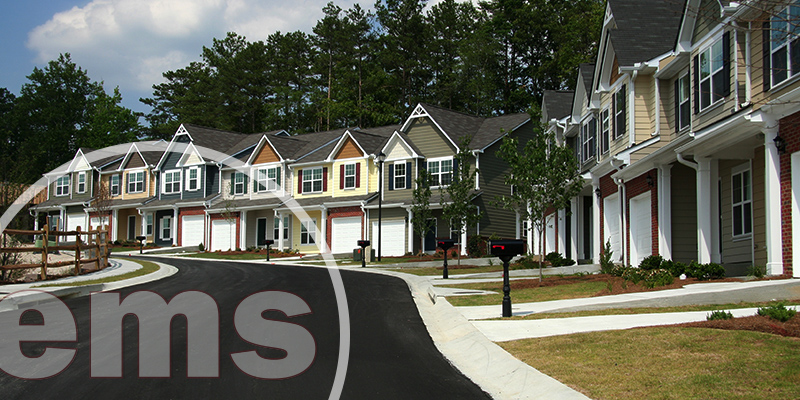Complying with your state laws is imperative if you want to stay out of legal trouble. What are the different Kentucky HOA laws that homeowners associations must keep up with?
Why You Should Know the Kentucky HOA Laws
Citizens have a personal responsibility to know the law and abide by them. In a similar fashion, HOA boards also have a duty to understand and keep informed of the different state laws that apply to their association. Unfortunately, when you lack legal experience, knowing the Kentucky homeowners association laws can come as a challenge.
Still, as a member of your board, it is well within your responsibilities to make sure your association stays out of legal trouble. Noncompliance can result in a world of consequences, most notably in the form of monetary penalties. A number of parties can accuse your association of breaching the law and sue your association for damages. Sometimes, this can be enough to bankrupt your HOA. Worse yet, it is the members of your community who will suffer the most.
To prevent such a situation from arising, it is essential for your HOA board to keep up with the many laws in your state. You can do this by yourself or, more preferably, with the help of an experienced attorney. While Kentucky does not have legislation that specifically governs homeowners associations, there are many Acts that apply to planned developments.
For Horizontal Properties
The Kentucky Horizontal Property Law, found under the Kentucky Revised Statutes 381.805 through 381.910, governs horizontal property regimes formed prior to January 1, 2011. This section offers a legal framework for the creation, apportionment of interests, insurance, liens, and common expenses of the regime. It also governs the powers of the association as well as maintenance requirements.
For Condominiums
 The Kentucky Condominium Act, found under K.R.S. 381.9101 through 381.9207, applies to condominiums created after January 1, 2011.
The Kentucky Condominium Act, found under K.R.S. 381.9101 through 381.9207, applies to condominiums created after January 1, 2011.
It is worth noting, though, that some sections of this Act can also apply to developments created prior to that date. Learn more about the applicability of provisions under K.R.S. 381.9103.
This Act regulates the creation, operation, management, and powers of the condominium development. It also talks about insurance, records retention, common elements, and purchaser protection.
The Kentucky Condominium Act consists of four sections, namely:
- General Provisions – KRS 381.9101 to 381.9123
- Creation, Alteration, and Termination of Condominiums – KRS 381.9125 to 381.9163
- Management of Condominium – KRS 381.9165 to 381.9199
- Protection of Condominium Purchasers – KRS 381.9201 to 381.9207
For Nonprofit Corporations
In Kentucky, there is no law that specifically regulates homeowners associations. But, homeowners associations that organize as nonprofit corporations must follow the Kentucky Nonprofit Corporation Act, found under K.R.S. 273.161 through 273.405. It is worth noting that most homeowners associations in Kentucky do follow the structure of a nonprofit corporation.
Kentucky Fair Housing Laws
As with many other states, there are also Kentucky HOA laws that prohibit unfair housing practices. Found under K.R.S. 344.360 et seq. and 344.600 through 344.680, the Kentucky fair housing laws offer protection from housing discrimination based on the following:
- Race
- Color
- National Origin
- Sex
- Religion
- Familial Status
- Disability
It is the state-level equivalent of the federal Fair Housing Act (FHA).
Victims can report their association to the U.S. Department of Housing and Urban Development or the Kentucky Commission for Human Rights for housing discrimination within a year from when the discriminatory act took place. Alternatively, victims can also sue their homeowners association for discrimination in the federal district court within two years of when the act took place.
Other Notable Federal Laws
Because Kentucky does not have specific laws that govern homeowners associations in particular, HOA boards must look to their association’s governing documents for guidance. These governing documents, consisting of the articles of incorporation, the CC&Rs, and the bylaws, should tell you what you can and can’t do. It should consist of specific provisions in relation to the board’s powers and responsibilities, voting rights, meetings, election processes, property restrictions, member obligations, and the like.
Apart from state laws and your governing documents, though, you should also look to federal laws. There are many other federal statutes that exist beyond the Fair Housing Act. But, the following are what commonly apply to homeowners associations.
Americans With Disabilities Act
The Americans With Disabilities Act (ADA) is similar to the FHA in that it protects persons with disabilities from discrimination. It generally applies to homeowners associations in terms of managing common areas that are open to the public.
Fair Debt Collection Practices Act
The Fair Debt Collection Practices Act (FDCPA) protects consumers from unfair, abusive, and deceptive debt collection practices. This applies to homeowners associations that hire third-party collection agencies to collect unpaid dues and fines. Some states have their own debt collection laws, but Kentuck is not one of them.
Servicemembers Civil Relief Act
The Servicemembers Civil Relief Act (SCRA) protects servicemembers from collection actions as well as foreclosures while they are on active duty. It also applies to activated reservists and national guard members active for over 30 days. It is important to note that the SCRA regulates all creditors, including HOAs, and not just third-party debt collectors.
Freedom to Display the American Flag Act
As its name gives away, the Freedom to Display the American Flag Act of 2005 protects homeowners’ right to display the U.S. flag on their property. It specifically bars homeowners associations from adopting and enforcing rules that would prevent residents from doing so.
Over-the-Air Reception Devices Rule
 Pursuant to the Over-the-Air Reception Devices Rule (OTARD), HOAs may not prohibit homeowners from installing antennas or satellites for video programming.
Pursuant to the Over-the-Air Reception Devices Rule (OTARD), HOAs may not prohibit homeowners from installing antennas or satellites for video programming.
Additionally, associations may not delay the installation, increase the costs of installation, or interfere with the owner’s ability to receive quality signal. But, associations can impose safety restrictions and restrictions necessary for historic preservation.
Good Board Members Stay Informed
As you can see, while there is no specific statute that governs homeowners associations, there are several other Kentucky HOA laws that apply to them. The key to avoiding legal trouble and financial issues is to comply with these laws. And you can’t remain compliant without knowing what these laws dictate.
Unfortunately, not all board members have the time or expertise necessary to keep up with the ever-changing laws or even interpret them. This is where an HOA management company like Elite Management Services can help. We offer expert legal assistance among other services. Call us today at (855) 238-8488 or contact us online for a free proposal.
RELATED ARTICLES:
- Know Your Ohio HOA Laws
- How To Manage The Most Challenging Homeowners’ Issues At Your HOA
- HOA Legal Responsibilities Every Homeowner Should Know







